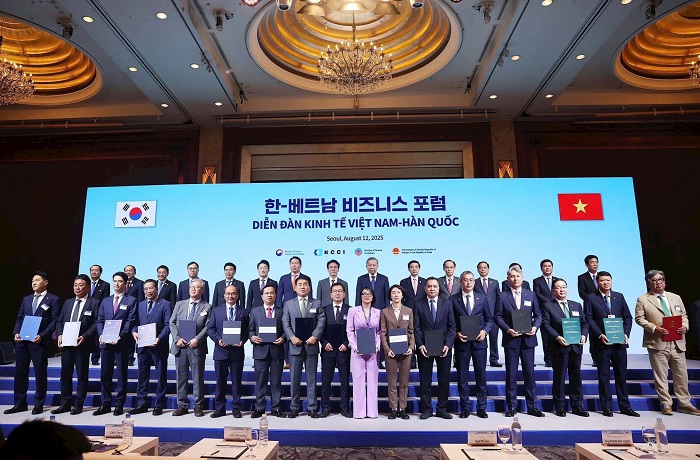Sky Mavis Triples Profit In 2024, Signals Post-Hack Comeback
Sky Mavis, the Vietnamese blockchain gaming studio behind Axie Infinity, has posted a strong financial recovery in FY 2024, with net profit tripling to $13.4 million. Revenue rose 51% to $35.2 million, while comprehensive income nearly doubled to $11.9 million. This marks a major rebound from the 2022 Ronin bridge hack that led to a $625 million loss and $18.89 million in financial damage the same year. Although cash reserves dropped to $26 million (from $132.6 million in 2022), total assets increased to $214.3 million, boosted by digital assets doubling to $53.2 million.

To sharpen its focus, Sky Mavis implemented a 21% workforce reduction in late 2024, shifting its energy toward the Ronin network, Mavis marketplace, a new Axie game, and Web3 publishing. Ronin Wallet has already exceeded 10 million downloads, ranking as the third most-used blockchain globally. Despite not raising new capital since its $152 million round in 2021, the company maintains a strong $2 billion valuation backed by major names like a16z, Accel, Animoca Brands, and Paradigm.
Sky Mavis’s financial turnaround shows how a company can bounce back from crisis with strategic focus and clear execution. The shift toward ecosystem consolidation and digital asset growth, combined with leaner operations, has started to pay off. For young investors watching the Web3 and gaming space, this signals how well-managed blockchain firms can overcome setbacks and why Vietnam remains a rising player in the global tech scene.
F88 Gears Up for Pre-IPO Round, Eyes $1 Billion Valuation
Vietnamese financial services provider F88 is planning a pre-IPO fundraising round in Q1 next year, with a clear goal: attract strategic investors to support its long-term vision of reaching a $1 billion market cap and listing on HoSE. Currently valued at $320 million, which is 15% higher than its debut on the UPCoM exchange, F88 aims to scale up to 1,000 stores nationwide by 2026 and expects its earnings multiple could reach 20x.

The company has shown strong financial momentum, reporting a profit of 351 billion VND ($13.5 million) in 2024, a major turnaround from a 545 billion VND loss the year before. Since becoming profitable in 2019, F88 has maintained a compound annual growth rate of 67% in revenue. Strategically, it has shifted from a pawnshop model to a broader financial services platform for Vietnam’s unbanked and underbanked population. To drive this expansion, F88 recently added the CEO of Thailand’s Ngern Tid Lor, a company with a similar model and a $2.6 billion IPO valuation, as an independent board member.
F88’s growth story reflects the increasing role of pre-IPO rounds in bridging private and public capital in Vietnam. Its transition from a niche financial service to a scaled-up platform highlights how startups can mature into IPO-ready companies. For young professionals following fintech, venture capital, or stock markets, F88 is a notable example of strategic positioning, resilience, and how domestic players can aim big and deliver.
The Draft Law On Science, Technology, And Innovation Is Expected To Be Submitted In October 2025
Vietnam is preparing to launch a new stock trading platform specifically for startups, to be integrated into the existing Hanoi or Ho Chi Minh City stock exchanges. This initiative is part of the draft Law on Science, Technology, and Innovation, expected to be submitted in October 2025. Unlike traditional exchanges, this platform will feature tailored listing and disclosure requirements that reflect the high-risk and early-stage nature of startups, which often have yet to turn a profit.
Currently, tech startups make up only about 1% of the more than 1,600 companies listed in Vietnam. The new platform aims to close this gap by offering domestic startups easier access to capital without having to list in markets like Singapore. If it attracts just 5-10% of the current capital flow, it could unlock between $20-50 billion USD, while also improving liquidity, transparency, and oversight for investments, IPOs, and M&A deals.
For more context and background on Vietnam’s preparations for this next step, check out last week's analysis.
InnoEx 2025 Positions HCMC as a Regional Innovation Powerhouse
On August 21, Ho Chi Minh City hosted the InnoEx Business Innovation Forum 2025, attracting over 30,000 attendees under the theme “Shaping the Future Economy: From Data to Digital Assets.” The event gathered 4,000 CEOs and founders, more than 100 startups, and over 70 international investment funds, reinforcing the city's rising status as a hub for innovation and the digital economy. InnoEx 2025 spotlighted breakthrough technologies and business models, giving startups and investors a platform to exchange ideas and drive sustainable growth in a rapidly changing tech landscape.

City leaders have committed to supporting InnoEx through 2028, with plans to position Ho Chi Minh City as a key regional center for innovation, finance, and technology. This vision aligns with Vietnam’s national push for digital transformation, as laid out in Politburo Resolution No. 57-NQ/TW. With a digital economy already making up about 20% of its GRDP, the city is also emerging as a testbed for fintech solutions, making it an increasingly attractive destination for capital and talent.
InnoEx 2025 reflects Vietnam’s broader ambition to become a global player in innovation. The event’s scale and international participation highlight the strength of the country’s startup ecosystem. For young professionals and investors, especially those tracking tech and finance in Southeast Asia, this marks Vietnam as a market to watch where bold policy meets entrepreneurial energy.
MB Bank Is Developing The Infrastructure For Vietnam’s First Digital Asset Trading Platform
Vietnam is taking a major step toward formalizing its crypto economy with the launch of its first digital asset exchange, established through a partnership between South Korea’s Dunamu (operator of Upbit, the world’s third-largest crypto exchange by trading volume) and MB Bank. Dunamu will contribute its technical and operational expertise, while MB Bank builds the necessary infrastructure, investor protection systems, and talent pipelines. With over 20 million Vietnamese owning digital assets and the country ranking fifth globally for blockchain capital inflows, the partnership highlights Vietnam’s growing relevance in the global digital asset space.

This development comes on the heels of the newly passed Digital Technology Industry Law, which will take effect in January 2026. The law provides a clear legal definition for digital assets and introduces a framework for regulation, marking a significant departure from the previous legal gray zone. The Ministry of Finance has confirmed that multiple exchanges may operate during a trial phase, though requirements are strict: a minimum capital of $400 million, 65% institutional ownership, and a 49% cap on foreign ownership.
Vietnam’s move to regulate and institutionalize its crypto market signals both maturity and ambition. For young investors and founders watching the digital finance space, this is a major development. It not only improves safety and transparency for users but also positions Vietnam as a serious contender in the regional digital economy, bridging the gap between global capital and local innovation.
Genesia Ventures is an early-stage venture capital firm operating in Japan and Southeast Asia, with a strong belief in the long-term potential of Vietnam’s digital economy. Beyond providing capital, the fund actively supports startups through strategic guidance and connections to a broader regional network.
